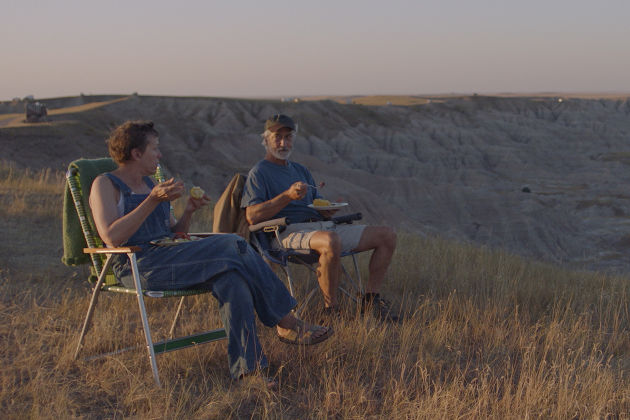
I didn't know much about Nomadland before I went to see it and it is testament to the lightness of touch employed by Chloé Zhao, the writer and director, that I have thought about little else since watching it in that so longed-for 'social' darkness of the cinema. The film, based on the non-fiction book of the same name by American journalist, Jessica Bruder, follows sixty-something Fern who, after losing her job and home and husband, joins a growing number of elderly US citizens choosing to spend their later years in camper vans, travelling the States, taking up work but always with a view to moving on and seeing more of the country. It is a fascinating consequence of financial recession in a country that provides scant welfare for its vulnerable and ageing population. Faced with the prospect of working until they drop dead because they cannot afford the traditional retirement, these people have formed their own movement that prioritises freedom and access to the natural world over paying off mortgages on houses that they only have time to sleep in. Who knew that Amazon even runs a scheme, CamperForce, for the purpose of employing the van-dwelling elderly at times of high seasonal demand? Given the presence of Amazon in the film, it felt as close to a documentary as the creative process can conjure. McDormand, who plays Fern, is an actor of such natural, empathic and understated embodying of her characters that it would be hard to imagine any other actor of her generation coming close to pulling off Fern's stoicism and fearlessness. Indeed, three of the 'characters' were actually played by themselves, so to speak.
Throughout the film, whose soundtrack was melodic but wistful piano by Ludovico Einaudi, I felt very sad. At times, the rawness of the life of these people seemed too much to bear. When Fern's van needs repairs and she doesn't have the money, we panic for her future. But Fern, we learn, has a conventional sister, living in conventional suburbia with a conventional husband. Said sister lends Fern the money for the van and even asks Fern to live with them. This is not the only time in the film that Fern is offered accommodation of the walls-and-roof variety. Each time she turns down these offers which forces us to realise that perversely as it may seem, Fern values her freedom and does not aspire to become rooted to a community. This is the quiet brilliance of the film, it challenges ideas that are so entrenched we hardly know how to view a person who is houseless without feeling tremendous sympathy. Even when the same person is time and again telling us, despite the hardships of their lifestyle, that this is what they choose, we cannot accept that it is so. Old age, by which I mean the bit right at the end, is usually the denouement, even if it's implicit, of a lifetime's plot. We want to think of the elderly safe and secure within the bosom of a warm and stable family. Anything else seems like an affront to civilisation. But of course, that narrative is what we bestow on others from our youthful vantage point. It does not allow for the autonomy of the group of people involved. When I watched the film I chose to see it as an indictment of the American Dream but it is actually far more than that. Certainly, it is far more original. The film asks some big philosophical questions: What is home? Who decides? And in a beautiful display of hope, Fern encounters the same people again and again as she travels her solitary path. This in itself shows us that connection does not have to mean living side by side within a static community but trusting that the cyclical path of your travels will ensure that you encounter your friends, your community, when you need them.
Pondering on the film after watching it, I realise that there was a lot in there that was poignantly uplifting, even if I could not at first see it. It would have been all too easy to politicise Nomadland. Far harder to do what Zhao has done and simply shine a light and ask viewers to sit back and watch the stories playing out on the great stage of American landscape where big skies allow for big dreams, even after the age of sixty.
No comments:
Post a Comment